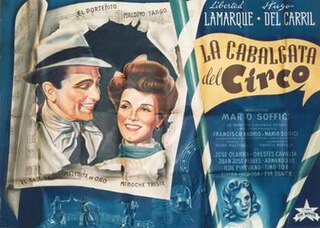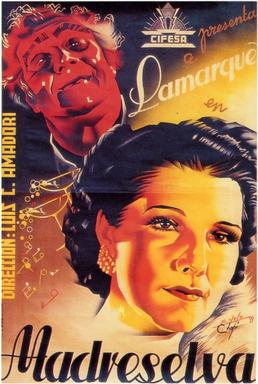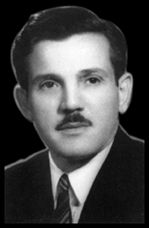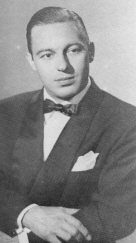
Libertad Lamarque Bouza was an Argentine and Mexican actress and singer, became one of the most iconic stars of the Golden Age of cinema in both Argentina and Mexico. She achieved fame throughout Latin America, and became known as "La Novia de América". By the time she died in 2000, she had appeared in 65 films and six telenovelas, had recorded over 800 songs and had made innumerable theatrical appearances.

The Soul of the Accordion is a 1935 Argentine tango musical film from the Golden Age of Argentine cinema directed by Mario Soffici, who wrote it with José A. Bugliot. It is considered one of the earliest classics of Argentine cinema.

Help Me to Live is a 1936 Argentine musical melodrama film directed and written by José A. Ferreyra with Libertad Lamarque. Starring Libertad Lamarque and Santiago Gómez Cou, the film premiered on 26 August 1936 in Buenos Aires. A typical tango-based film of the Golden Age of Argentine cinema, its international success gave a great boost to the booming Argentine film industry.

Mario Soffici was an Italian-born Argentine film director, actor and screenwriter notable for his work during the Golden Age of Argentine cinema.

Caminito de Gloria is a 1939 Argentine musical melodrama film written and directed by Luis César Amadori during the Golden Age of Argentine cinema. The film stars Libertad Lamarque, who sings "Caminito", the celebrated 1926 tango composed by Juan de Dios Filiberto with lyrics by Coria Peñaloza originally popularized by Carlos Gardel and Ignacio Corsini. In 1960 Amadori remade this film under the title Mi último tango, starring Sara Montiel in the role previously played by Lamarque.

The Circus Cavalcade is a 1945 Argentine musical film directed and written by Mario Soffici with Eduardo Boneo and Francisco Madrid, during the classical era of Argentina cinema. The film was shot on black-and-white stock with a monaural soundtrack. It stars Libertad Lamarque and Hugo del Carril.

Orestes Caviglia was an Argentine film actor and film director of the Golden Age of Argentine cinema.

Ada Cornaro was a prominent Argentine film and theatre actress, tango dancer and singer of the 1930s and 1940s.

Honeysuckle is a 1938 Argentine melodrama musical film directed by Luis César Amadori. With Ivo Pelay, Amadori co-wrote the play upon which the film is based. Starring Hugo del Carril, Libertad Lamarque and Malisa Zini, it premièred in Buenos Aires on 5 November 1938 and was a popular success. Its plot is loosely based on the lyrics of a tango song of the same name. It is a tango film, an extremely popular genre during the Golden Age of Argentine cinema (1930s–1950s). It was screened at the Venice Film Festival.
El fin de la noche is a 1944 Argentine film. It is notable for being an anti-Nazi film made in neutral Argentina during World War II and set in occupied France. Shot from August to November 1943 in Cordoba Province, the release was put on hold for more than a year, pending authorization by the pro-Axis military government of that time. The film is also remembered in Argentina for Libertad Lamarque's performance of the tango Uno, composed by Mariano Mores and Enrique Santos Discépolo.

Traces of the Past is a 1950 Mexican drama film directed by Alfredo B. Crevenna and starring Libertad Lamarque, alongside Emilia Guiú, José María Linares-Rivas and Xavier Loyá. It was shot at the Tepeyac Studios in Mexico City. The film's sets were designed by the art director Edward Fitzgerald. The film is considered one of Lamarque's "mother melodramas" that she made in Mexico.

Gran Casino is a 1947 Mexican film. It was written by Mauricio Magdaleno and Edmundo Baez, based on a story by Michel Weber, and directed by Luis Buñuel.

Mario Maurano was an Argentine film score composer and pianist, best remembered for his tangos. He was especially known for his orchestral work supporting starlet Libertad Lamarque, with songs including Te quiero (1946) and many more. He was a frequent collaborator with director Luis Moglia Barth in the Golden Age of Argentine cinema, and was particularly prolific in the late 1930s and 1940s, composing for films such as Twelve Women (1939), Confesión (1940), Con el dedo en el gatillo (1940), Huella (1940), and Boína blanca (1941). He also worked on films such as Caminito de Gloria (1939) with Luis César Amadori, and La Verdadera victoria (1944) with Carlos F. Borcosque.

Alfredo Malerba was an Argentine pianist and musician, producer and screenwriter, with an illustrious career. He wrote tangos such as Besos brujos, Te lloran mis ojos, Canción de cuna, Cuando el amor muere, Un amor, Cosas del amor and Vendrás alguna vez.
Susana Naidich is an Argentine singer, musicologist, phonologist, voice teacher, and Speech-language pathologist. She was the founder and first president of the Argentine Society of the Voice.

Soledad is a 1947 Mexican drama film directed by Miguel Zacarías and starring Libertad Lamarque, René Cardona and Marga López. It was shot at the Clasa Studios in Mexico City. The film's sets were designed by the art director Javier Torres Torija.

Another Spring is a 1950 Mexican drama film directed by Alfredo B. Crevenna and starring Libertad Lamarque and Ernesto Alonso.

The Lady of the Veil is a 1949 Mexican drama film directed by Alfredo B. Crevenna and starring Libertad Lamarque, Armando Calvo and Ernesto Alonso. The film's sets were designed by the art director Jesús Bracho.
The Woman Who Had No Childhood is a 1957 Mexican comedy drama film directed by Tito Davison and starring Libertad Lamarque and Pedro Armendáriz.
















